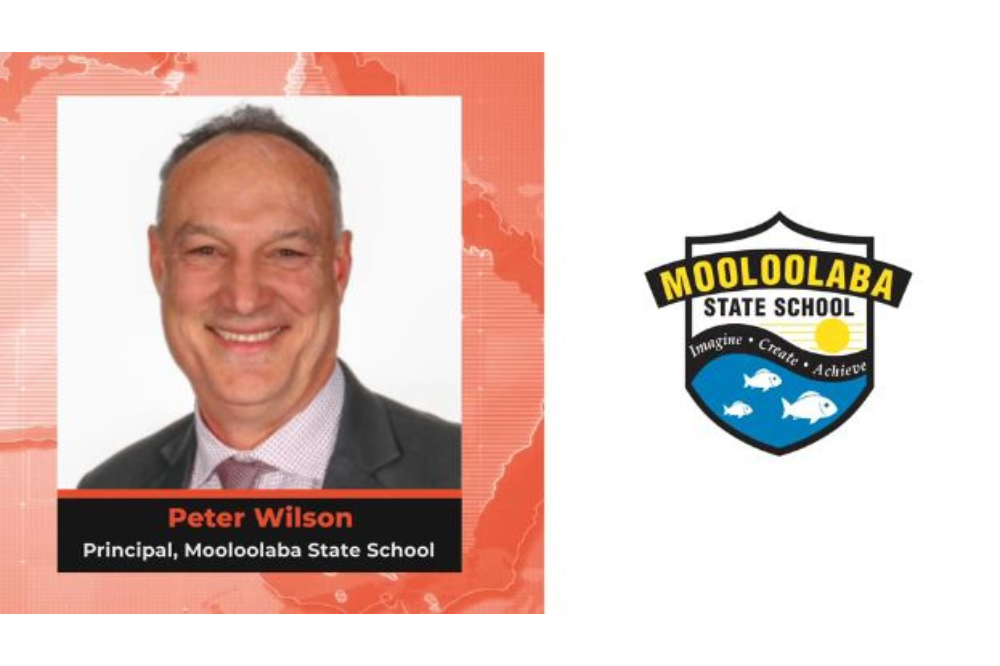
As someone who has headed up schools since 1995, Mooloolaba State School principal Peter Wilson has seen modern education change in ways that are exciting, daunting, and dizzying all at the same time.
With education at the precipice of the AI era in 2024, Wilson firmly believes a hybrid approach to student success is critical. This, he says, involves equipping educators with modern skills and tools to not only enrich student learning in the classroom, but prepare them for life beyond the school gates.
In an interview with The Educator below, Wilson delves into the transformative impact of digital technology, mental health initiatives, and the integration of AI in classrooms, reflecting on how these advancements can be harnessed to enhance educational outcomes and community engagement.
TE: In your role and career as principal, what is it that you're most passionate about?
Obviously, the kids, and how well the kids are achieving. But I think in order to do that, we need to support and invest in our teachers and provide them with the currency and the upgraded skills to do what they can best do to help our kids in the best way to help shape the future citizens of our country, but also in the global context. Unfortunately, at times, I think primary education hasn't quite addressed that particular area, and this is something I would like to see our governments invest more effectively in. Not just primary education, but how we can support educators to ultimately become better teachers.
TE: The education landscape in Australia is transforming rapidly. Can you talk us through the changes you're most affected by and how you're approaching their adoption?
The biggest change, and the constant change, is digital technology. We need to address the fact that while our kids are growing up in this era, our teachers haven't. So, we've got to provide those skills and experiences and ways to utilise new technology that benefits people, instead of just turning them away from education and learning. Primary school is the only government institution that's in every single community in Queensland, so therefore, we've got both an opportunity and an obligation to make sure that we assist that community as a whole, as the kids within our school, to become effective citizens in the future. That involves utilising things like digital technologies, working on mental wellness, and academic rigor.
TE: Metal health and wellbeing have never been as top of mind and vital as they are right now. How is Mooloolaba State School approaching this important area with its students?
There are a variety of extracurricular activities that staff offer out of their own time, and that provides not just a sense of balance and wellness, but also opportunities for those students who aren't particularly academic to shine. It also provides opportunities for teachers, staff, parents and students to see others have success in other ways. Some of the activities involve a debating competition, involvement in AFL, boys and girls soccer, rugby league, our music program, choir, running club, surfing excellence program, and a skateboarding program we've just started. The community recognises the importance of having these options for kids, and it's important also in my role as the principal. My colleagues and our deputy principals are also very visible in that space as well. So, I think the community needs to see that we support not just Maths and English, which are essential, but also those extracurricular activities.
TE: Circling back to the subject of technology, the topic of AI is an increasingly complex one. What are your thoughts on how to best work with it going forward?
We’re all trying more about how we can use AI most effectively, and I think that’s the thing we need to really understand. Whether we're going to use AI or not, it's how we use it effectively, and how that benefits our kids the most, and in a fashion that builds – rather than detracts – upon the skills of our teachers. I think teachers will remain important in the AI era. There are some things I believe AI will be able to do, like take some of the load off teachers, that I would hope will translate to us being able to differentiate for the individual needs of kids, at times with the assistance of AI…but AI is not just in teaching, it's around us in absolutely everything we do, so it's inevitable that we’ll have to engage with it.
TE: With so much on your plate, how can teachers and principals be best supported to ensure they’re adequately equipped to do their job?
In 2011, Dr David Gonski published his report into how much funding was required for schools to operate effectively at a minimum standard – that figure is now 13 years old. So, we need to be looking how we can resource public school education at 100% of the minimum requirement. That’s that's the biggest thing I think needs to happen. The other one that then is aided by that, if you like, and particularly in a primary school setting, is having experts on site to help teachers further develop their pedagogy…to work with them in their planning…work with them in their teaching…to help them become better at what they do.
This Q&A originally appeared as a video interview and has been edited for length.


